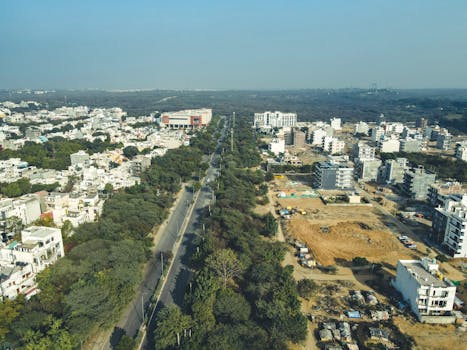+17162654855
+17162654855
Industrials

The internet, particularly X (formerly Twitter), recently erupted in a heated debate comparing the road infrastructure of Gurgaon (Gurugram) and Bangalore, fueled by a seemingly innocuous comparison to Dubai's pristine roadways. The ensuing online showdown highlighted the stark differences in urban planning, infrastructure development, and the frustrations experienced by residents in both tech hubs. Using keywords like "#GurgaonRoads," "#BangaloreTraffic," "#IndianRoads," "#UrbanPlanningIndia," and "#DubaiInfrastructure," the discussion quickly spiraled into a full-blown city-versus-city battle, showcasing the contrasting realities of life in two of India's most dynamic metropolitan areas.
The initial post, which quickly went viral, featured a side-by-side comparison of images: one showcasing a gleaming, modern highway in Dubai, the other depicting a pothole-ridden street in Gurgaon, arguably representative of many areas within the city. This seemingly simple comparison triggered a wave of responses, with many users sharing their own experiences with Gurgaon's road infrastructure, highlighting issues such as:
These issues resonated deeply with residents who frequently vent their frustrations about the daily struggles of navigating Gurgaon's roads. The comparison with Dubai, a city known for its meticulously planned and maintained infrastructure, only served to amplify these feelings.
The debate didn't remain confined to Gurgaon's woes. Bangaloreans, known for their own set of infrastructural challenges, jumped into the conversation, offering a counter-narrative. While acknowledging Bangalore's own share of traffic woes and infrastructure shortcomings, they argued that certain aspects of Gurgaon's roads were significantly worse. This resulted in a fascinating, albeit sometimes heated, exchange on X, with users from both cities sharing photos and videos to support their claims.
The Bangalore counter-argument focused on:
This back-and-forth underscored the complexities of comparing urban spaces and the subjective nature of evaluating infrastructure quality. What constitutes “good” infrastructure often depends heavily on individual experiences and expectations.
Beyond the immediate road rage, the X debate touched upon more profound issues related to urban planning and governance in Indian cities. The comparison with Dubai served as a stark reminder of the disparity in infrastructure development between cities in developed and developing nations.
The core problems highlighted included:
The intense debate on X highlights the platform's evolving role as a space for civic engagement. Social media offers a powerful tool for citizens to voice their concerns, share their experiences, and put pressure on authorities to address infrastructural deficiencies. The Gurgaon-Bangalore showdown underscores the potential of social media to amplify public discourse and encourage accountability from urban planners and government bodies.
The online showdown serves as a wake-up call. Both Gurgaon and Bangalore need to prioritize long-term urban planning, focusing on sustainable and inclusive infrastructure development. This requires robust citizen engagement, transparent governance, and efficient project implementation. The Dubai comparison, while initially sparking a heated debate, ultimately provided a valuable opportunity to reflect on the pressing infrastructural challenges facing Indian cities and the urgent need for better urban planning and management. The conversation on X, although passionate and at times contentious, ultimately served as a crucial forum for highlighting these critical issues and demanding improvements.
DMV Publication News serves as an authoritative platform for delivering the latest industry updates, research insights, and significant developments across various sectors. Our news articles provide a comprehensive view of market trends, key findings, and groundbreaking initiatives, ensuring businesses and professionals stay ahead in a competitive landscape.
The News section on DMV Publication News highlights major industry events such as product launches, market expansions, mergers and acquisitions, financial reports, and strategic collaborations. This dedicated space allows businesses to gain valuable insights into evolving market dynamics, empowering them to make informed decisions.
At DMV Publication News, we cover a diverse range of industries, including Healthcare, Automotive, Utilities, Materials, Chemicals, Energy, Telecommunications, Technology, Financials, and Consumer Goods. Our mission is to ensure that professionals across these sectors have access to high-quality, data-driven news that shapes their industry’s future.
By featuring key industry updates and expert insights, DMV Publication News enhances brand visibility, credibility, and engagement for businesses worldwide. Whether it's the latest technological breakthrough or emerging market opportunities, our platform serves as a bridge between industry leaders, stakeholders, and decision-makers.
Stay informed with DMV Publication News – your trusted source for impactful industry news.